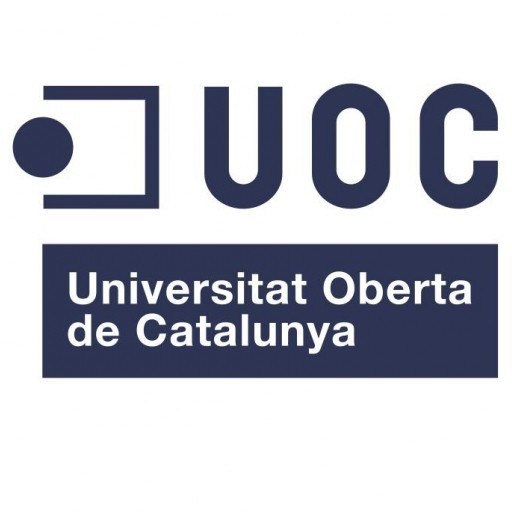Photos of university / #uwtsdinternationalstudents
The Bachelor of Arts in Islamic Studies offered by the University of Wales provides students with an in-depth understanding of the diverse aspects of Islamic religion, culture, history, and society. This undergraduate program aims to equip students with comprehensive knowledge of the core principles of Islam, its historical development, and its influence on contemporary social and political contexts. Throughout the course, students explore various topics including Qur'anic studies, Hadith, Islamic law (Sharia), theology, philosophy, and important Islamic civilizations. The curriculum emphasizes critical thinking, analytical skills, and cultural awareness, enabling graduates to engage effectively in academic, community, or professional environments related to Islamic studies and intercultural dialogue.
Students will benefit from a multidisciplinary approach, combining insights from history, sociology, religious studies, and languages. The program also encourages engagement with primary sources and encourages students to develop research skills, scholarly writing, and the ability to interpret Islamic texts and practices within their historical and modern contexts. Additionally, students have opportunities for fieldwork, guest lectures, and participation in conferences that enrich their learning experience.
Designed to prepare students for various careers, including teaching, journalism, community work, government advisement, or further academic research, the BA in Islamic Studies at the University of Wales fosters a nuanced understanding of Islam's role in contemporary society. The program promotes intellectual curiosity, ethical awareness, and cultural sensitivity, vital for navigating a globalized world with diverse religious and cultural identities. Graduates leave well-equipped with the knowledge and skills necessary to contribute positively to discussions on religious and cultural issues, foster intercultural understanding, and support community development initiatives related to Islam and Muslim communities worldwide.
Students work at their own pace via distance learning. You choose a time to suit your own personal circumstances. The 'work load' is as heavy or light as you wish, but it is recommended that you allow at least a few hours a week in order to progress with your studies. Some students have taken substantial time out of their schedules to concentrate on progressing quickly through the programme, whilst others have juggled family, career and other commitments whilst snatching a few hours a week! Some sympathetic employers have allowed students 'time-off' in order to work on their studies (and have even offered financial support). Arabic is not a requirement for this MA.
Students wishing to enjoy the 'campus experience' (and the beautiful local countryside and coast) can also attend optional study periods at the University of Wales Lampeter. There is the possibility
When you start studying, you will receive module packages relating to your programme. Each module package comes with all the information required to start studying your chosen subject, including detailed notes and guidance, and a 'set book'. These modules have been especially written for the MA by the Islamic Studies specialists in the department. You can also access a full range of university resources, from wherever you are located. Plenty of contact and support is provided: students can e-mail, write and phone for advice, and the Department has an excellent and 'user-friendly' postgraduate support system for distance learning. From July 08, a Newsletter will be sent to all students.
Lampeter offers a wide range of library resources for the MA Islamic Studies, including inter-library loans. Electronic resources are particularly important, and through the library system you can access a variety of journals, books and other materials. There is a growing range of materials online suitable for use in the MA Islamic Studies. Particularly important is the Encyclopaedia of Islam: Online Edition.of a field trip as part of the study programme.
A range of modules are available. You must take the compulsory modules in order to qualify for the MA.
* Islam Today
* Study Skills for Islamic Studies [New]
* Islamic Law in the Contemporary World
* From Theocracy to Nation Statehood - The Making of Egypt
* Muslim Networks: Communication, Knowledge, and Islamic Traditions in Historical and Contemporary Perspectives
* Muslim Politics
* Project Module
Compulsory modules
* Core modules
The MA Islamic Studies also offers the possibility of incorporating the study of other distance learning modules offered by the Department of Theology & Religious Studies at University of Wales Lampeter (up to 40 credits) in a wide range of subject areas.
Masters degrees are assessed by written work for both the taught modules and the dissertation. Each student will be required to submit six essays of 5,000 words (or the equivalent), and upon successful completion of these essays, proceed to a dissertation of no more than 20,000 words. Those who then successfully complete their dissertation will then qualify for an MA Islamic Studies of the University of Wales.
Students who successfully complete the six taught elements of the course will qualify for a University of Wales Diploma, and students who complete three modules will qualify for a University of Wales Postgraduate Certificate.
Programme requirements for Islamic Studies at the University of Wales typically include the successful completion of a specified number of credits through a combination of core modules, optional modules, and a dissertation or research project. Applicants generally need to hold a relevant qualification at undergraduate level or equivalent demonstrate proficiency in English, such as IELTS or TOEFL scores, meeting the university's language proficiency standards. The program often requires students to undertake foundational modules in Islamic history, theology, and culture in the initial stages to build a comprehensive understanding of the subject. Advanced modules may cover topics such as Islamic law (Sharia), contemporary Islam, Sufism, and Islamic philosophy, allowing students to specialise according to their interests. To graduate, students must accumulate a predetermined number of credits, often around 120 at master's level or 360 at doctoral level, depending on the program structure. Coursework may include essays, presentations, exams, and research projects, with assessment criteria aligning with academic standards. Research components, such as a dissertation, are designed to develop students' analytical, research, and critical thinking skills in Islamic Studies. Additional requirements might include attendance at seminars and workshops, participation in discussions, and adherence to academic integrity policies. International students are expected to meet visa and health insurance requirements in addition to academic prerequisites. Overall, the programme aims to develop students' understanding of Islamic civilization, history, and contemporary issues, preparing them for careers in academia, education, journalism, or community leadership.
UK Students
Unfortunately, funding is very scarce for postgraduate courses. Some funding is available from external bodies such as the Arts and Humanities Research Council (AHRC). The AHRC is funded by a number of sources including the British Academy and the Department of Higher and Further Education and offers support including professional and vocational awards and Studentships in the Humanities. Applications can be made via the Registry in February each year. Occasionally there are University of Wales Studentships available which are equivalent to the funding given by the AHRC, but these are subject to availability. A funding guide is available from the Registry. Most UK students are self-funding and many opt for Career Development Loans.
Overseas Students
Loans
American and Canadian students can apply for funding via the Federal Student Loan System for their respective countries.
Overseas scholarships
Overseas students may apply for Overseas Research Scholarships if they are intending to study for a full-time MPhil or PhD. Application forms are available in February of each year from the Registry and must be completed and returned to the Registry by the end of April in any given year. If candidates are successful in their application, fees are reduced to that of a home student.
The Bachelor of Arts in Islamic Studies at the University of Wales is a comprehensive undergraduate programme designed to provide students with a deep understanding of Islamic history, theology, law, and culture. The programme aims to equip students with critical analytical skills and a nuanced appreciation of the diverse expressions of Islam across different regions and historical periods. Students engage in core modules that cover the foundational aspects of Islamic faith, jurisprudence, mysticism, and contemporary issues facing Muslim communities worldwide. In addition, the programme offers specialized courses that explore Islamic philosophy, literature, and politics, allowing students to tailor their learning to their interests and career aspirations.
The programme is structured to promote both theoretical knowledge and practical understanding. Students will participate in seminars, lectures, and discussions that encourage active engagement and critical thinking. They will also have opportunities for research projects and fieldwork, which enhance their ability to analyze real-world issues through an Islamic lens. The curriculum not only emphasizes academic rigor but also fosters intercultural dialogue and awareness of religious diversity, making graduates well-prepared for careers in academia, community work, policy analysis, or further postgraduate study.
The University of Wales’s Islamic Studies programme is delivered by experienced academics with extensive expertise in Middle Eastern studies, religious studies, and contemporary Islamic issues. The programme can be completed full-time or part-time, providing flexibility to accommodate various student needs. Students will benefit from access to rich resources, including university libraries, online databases, and research centers dedicated to religious and cultural studies. By the end of the programme, graduates will have developed a critical understanding of Islamic doctrines, a respectful appreciation of its cultural diversity, and the analytical skills necessary for engaging with complex religious and social phenomena.
The programme also encourages international perspectives, with opportunities for study abroad and involvement in global debates on religion and society. Graduates of this programme are well-positioned for careers in education, journalism, diplomatic service, community leadership, or continued academic research. The University of Wales’s commitment to academic excellence and social relevance ensures that the Islamic Studies programme remains responsive to changing global contexts and emerging scholarly debates. Overall, this programme offers a rigorous, enriching, and globally aware education for anyone interested in understanding Islam’s role in history, society, and contemporary issues.








